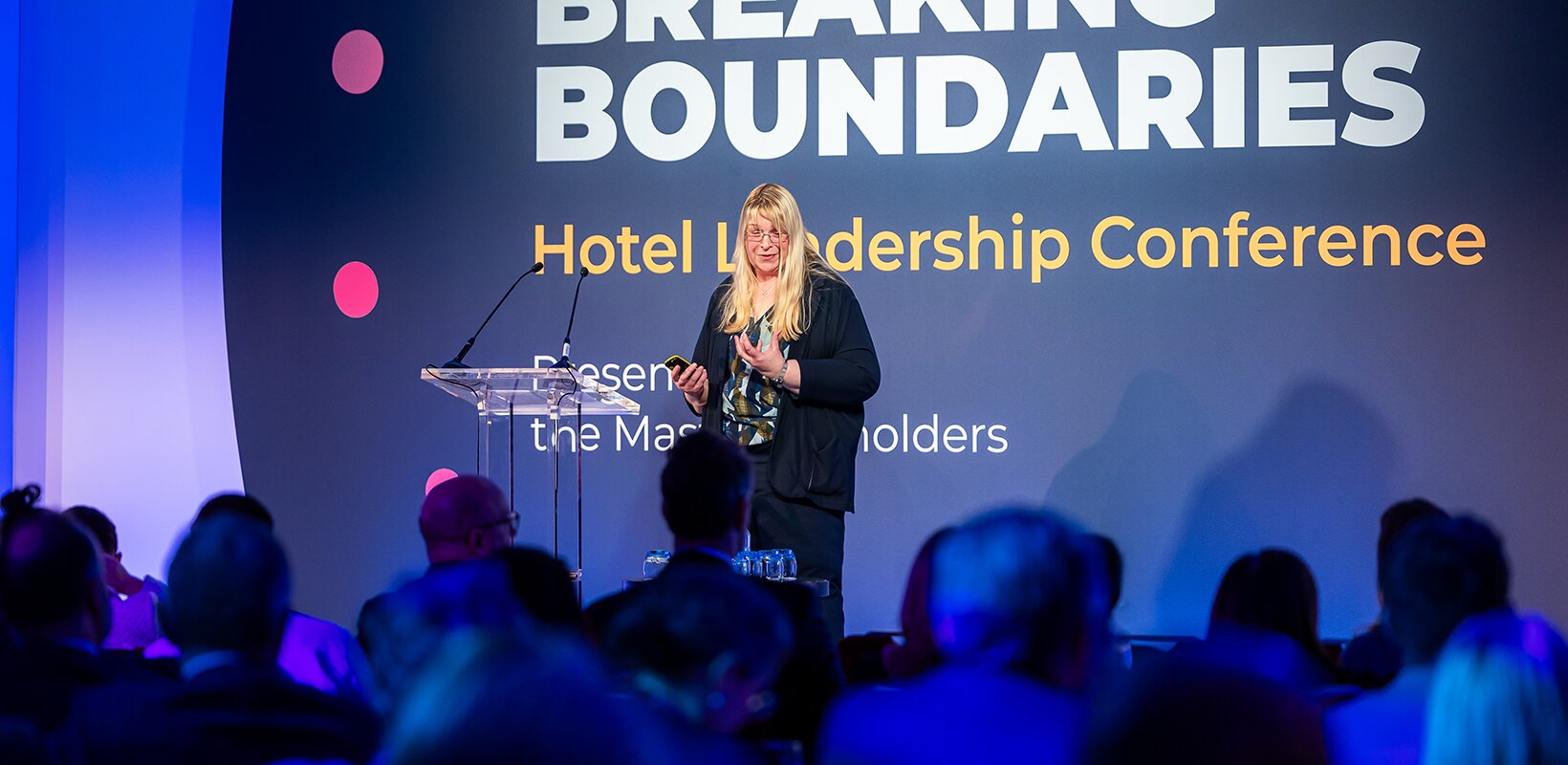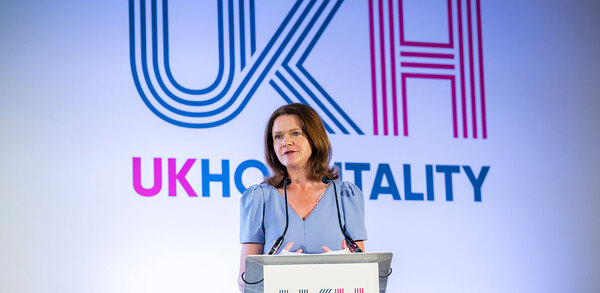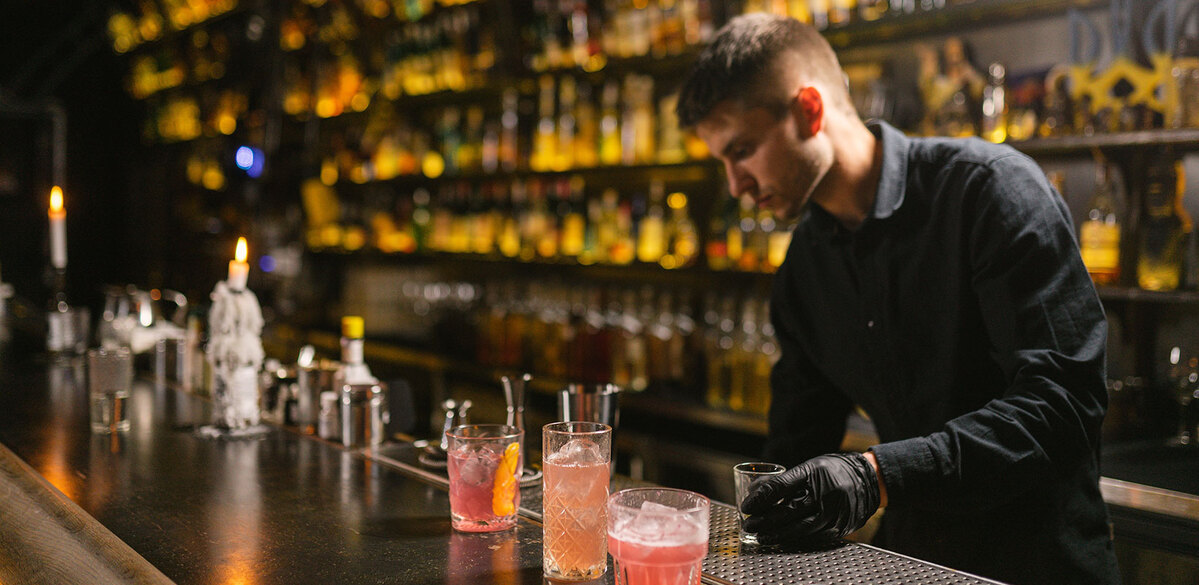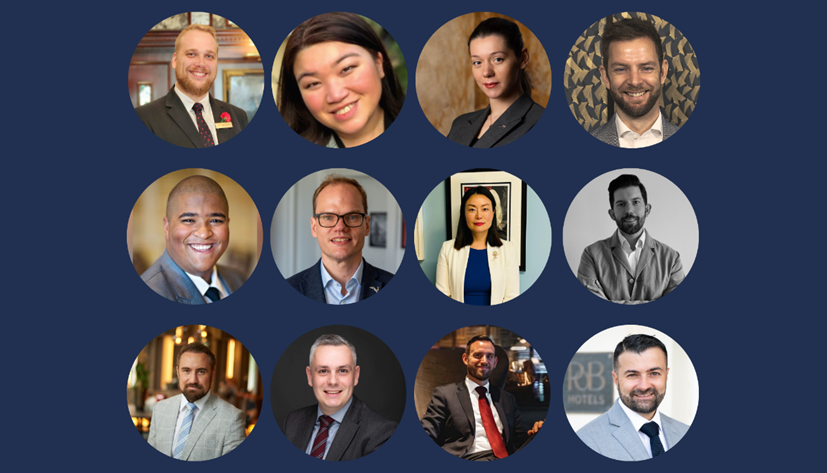‘Brink of transformation’: Master Innholders’ 2024 Conference explored new ideas for hoteliers
The Master Innholders’ 2024 Hotel Leadership Conference explored the latest innovations, from AI to the metaverse
Psychedelic retreats, metaverse hotels and reviews written by artificial intelligence (AI) were just some of the talking points at this year’s Master Innholders’ Hotel Leadership Conference, organised by Adrian Ellis, general manager of the Lowry in Manchester.
More than 450 chief executives, general managers and hoteliers descended on the Park Plaza London Riverbank in Vauxhall, London, for the packed two-day agenda, which consisted of 10 talks, a gala dinner and plenty of opportunities for networking.
Attendees were challenged to think about the practical uses of AI, the balance between sustainability and luxury, and how to engage with the campaign to cut hospitality VAT (see panel). Above all, the programme sought to bridge the gap between new ideas and implementation, particularly in regard to technology.
Jeremy White: “If you are not playing with ChatGPT, you should be”
Jeremy White, senior innovation editor at technology magazine Wired, kickstarted the conference with an overview on recent technological advances. Questioning whether the world is having a ‘moment’ equivalent to the launch of the iPhone, internet or atomic bomb, White encouraged the audience to consider the consequences of modern advances. Take, for example, the chatbot feature, commonly used on hotel websites for booking rooms or asking questions about the property. What would happen if a business were to start using Pactum, a company that seals deals using negotiating bots? Or to train chatbots with AI software using customer data?

White opened up the practical possibilities of integrating AI into the day-to-day operations of a hotel, while also flagging the dangers associated with lax security and outdated information. But he was keen to stress that AI “is not coming to take everyone’s jobs either”, but could be used to help hoteliers. He gave the example of ChatGPT, OpenAI’s bot-like language model, which was launched in November 2022: “ChatGPT could be shown a model of a website and it will build a facsimile for you. It doesn’t require any coding information, you can just speak at it. The product is limited only by imagination,” he said.
ChatGPT can also be used for language translation, creating itineraries or even taking minutes from meetings. “If you are not playing with this, you should be, even just as a jumping-off point. It’s so easy to do, it’s criminal not to try.”
Ella Sy: “Hospitality is hovering on a brink of transformation”
Ella Sy, strategy director at consulting firm GDR, drew attention to how trends are dominated by the demands of different demographics. Research has shown Gen Z (born 1997-2012) are both climate-conscious and have wanderlust – a balance that “is really hard to strike, but possible” through the provision of climate-conscious travel and carbon-positive hotels.
She also discussed the rising interest in (legislation-friendly) psychedelic and neuroscience retreats, as well as the boom in luxury brands moving into the hospitality space, with Louis Vuitton due to open its first hotel in Paris in 2026.
“It’s not just about bags and high-end brands. It’s about bringing that lifestyle of high-end luxury experiences to its clientele too,” Sy explained.
Naga Munchetty: “Can a luxury hotel be sustainable?”
Broadcaster and journalist Naga Munchetty was joined by Sue Williams, the former general manager of Whatley Manor in Malmesbury, Wiltshire; Simon Bullingham, chief executive and founder of hotel technology business Journey Hospitality; and David Morgan–Hewitt, managing director of the Goring in London’s Belgravia, to discuss topics ranging from the purpose of AI in hospitality to the challenges of championing both luxury and sustainability.
Morgan-Hewitt spoke candidly about the limitations of AI, conceding that though it can be powerful behind the scenes, it will not be able to replace humans. “What people want when they come to a luxury hotel is to be taken care of by all members of staff, not just guest services. People want to be loved. At the end of the day, we’re nothing more than innkeepers,” he explained.

But he was still concerned about the acceleration of fake reviews through services such as ChatGPT, which can easily mimic the tone of a complaint on TripAdvisor: “You’ve got to be able, as a consumer, to recognise fake reviews and be able to sift through them, but AI is moving so fast that I don’t think we’re going to understand the pitfalls fast enough,” he said.
More positively, Williams spoke about using AI to spearhead data collection regarding waste, water, energy and the supply chain.
She suggested it could ease the process of introducing sustainability legislation or accreditation, as there would be more ways of measuring data. Williams even predicted that in several years’ time, sustainability would become as mandatory as due diligence or health and safety.
When Munchetty probed the extent to which sustainability and luxury can be compatible, giving the example of the sometimes over-generous number of towels in hotels, Williams said: “Sustainability isn’t about austerity and everyone having to be earthy. There are some fabulous towels which take 40% less energy and they are evolving all the time, so there’s a lot that can be done in that space.”
Timothy Griffin: “The metaverse can amplify the brand experience”
Timothy Griffin, principal at Wellbrook Hospitality and co-founder of Leven Hotels, revealed how he opened a hotel in the metaverse – a three-dimensional virtual space. Griffin, who was responsible for bringing the Hoxton brand to America during his time as a regional managing director for Ennismore, decided to launch a virtual version of Leven – the Levenverse – in November 2021 after opening the group’s first physical hotel in Manchester.
The Levenverse has been designed to “supersize” the experience of the original hotel. For example, wellness sessions taking place in the real hotel align with those offered in the virtual property.
Considering the metaverse has 400 million active users, 80% of whom are below 16 years old, Grifin felt it was right to expand Leven’s online footprint. “In terms of interior design and VR training for staff later down the line, the metaverse has significant benefits,” he added.
Kate Nicholls: “We need weight in numbers”
The chief executive of UKHospitality delivered an update on what the trade body has achieved over the past year and was keen to stress there were positives on the way.
She outlined a three-point plan for the year, which included campaigning for a reform of business rates and the apprenticeship levy as well as driving economic growth through a VAT cut. As the UK heads into an election year, Nicholls stressed the importance of preparing for the possibility of a Labour government, which will have a different set of priorities. She also warned hoteliers about Labour’s proposal to scrap zero-hours contracts, which could have a serious knock-on effect on the industry.
cater.affino.com/AfcTemp/MediaImport240424/wtpi214718)" alt="" />
“We need to make sure we are on the front foot [of Labour’s policies]. It is talking about big increases in the National Living Wage and the London Living Wage. It is talking about a ban on zero-hours contracts, with every worker having as a reference period the first 12 weeks of work, which doesn’t fit for variable employment rights,” she said.
She later told The Caterer: “While many businesses will have policies to ensure workers have reasonable notice of change to shifts, it needs to be recognised that hospitality can be unpredictable in its trading patterns. We’re consulting with our members on what the best framework is for hospitality to operate under when it comes to changes in shifts and would welcome engagement with all political parties on this issue.”
She warned that a ban on zero-hours contracts “would have pitfalls”, and added: “Businesses are looking to provide more predictability in contracts and we are happy to discuss the right balance of flexibility and stability for employer and employee.”




















